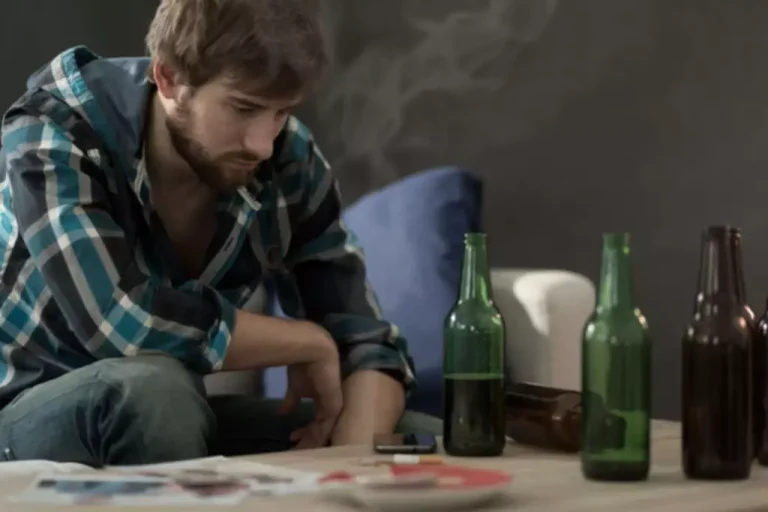
While this might seem counterintuitive, it is a common thought that many people need to recognize if they want to avoid a relapse. While celebrating victories is important, you should also find constructive ways to acknowledge your sobriety. So does this mean that even a brief lapse must lead to a full-blown relapse? Does it mean a person must continue to drink or drug until the use returns to the initial level?
Adopting a sense of compassion

This can lead to a full relapse by making someone believe that because they’ve already messed up, there is no hope of achieving sobriety. As a result, they may also be less likely to try staying sober again after subsequent use. It can also be particularly vital for mental health professionals to communicate the reality of addiction. Substance use disorders are clinical mental health disorders, meaning addiction is a matter of neurological and biological predispositions and changes what is Oxford House that take time to rectify. These rectifying steps usually include changing external elements rather than finding a magic button of willpower.

Stopping a Slip From Becoming a Relapse

If you’re interested in trying online therapy, you can reach out to get matched with a qualified virtual therapist today. Additionally, the support of a solid social network and professional help can play a pivotal role. Encouragement and understanding from friends, family, or support groups can help individuals overcome the negative emotional aftermath of the AVE. Mental relapse is characterized by thoughts of using drugs or alcohol again. You may be conflicted between resisting thoughts about drugs and compulsions to use them.
- Understanding the AVE is crucial for individuals in recovery and those focused on healthier lifestyle choices.
- Unconscious cravings may turn into the conscious thought that the drug or alcohol is all you need to cope.
- This finding supplements the numerous studies that identify lack of readiness for abstinence as the top reason for non-engagement in SUD treatment, even among those who recognize a need for treatment (e.g., Chen, Strain, Crum, & Mojtabai, 2013; SAMHSA, 2019a).
- Client is taught that overcoming the problem behaviour is not about will power rather it has to do with skills acquisition.
How the Abstinence Violation Effect Affects Recovery

An individual may experience uncontrollable, stable attributions and feelings of shame and guilt after relapsing as a result of AVE. The RP model proposes that at the cessation of a habit, a client feels self-efficacious with regard to the unwanted behaviour and that this perception of self-efficacy stems from learned and practiced skills3. In a prospective study among both men and women being treated for alcohol dependence using the Situational Confidence Questionnaire, higher self-efficacy scores were correlated to a longer interval for relapse to alcohol use8. The relationship between self-efficacy and relapse is possibly bidirectional, meaning that individuals who are more successful report greater self-efficacy and individuals who have lapsed report lower self-efficacy4. Chronic stressors may also overlap between self-efficacy and other areas of intrapersonal determinants, like emotional states, by presenting more adaptational strain on the treatment-seeking client4. Another possible outcome of a lapse is that the client may manage to abstain and thus continue to go forward in the path of positive change, “prolapse”4.

Specific Intervention strategies in Relapse Prevention
This finding supplements the numerous studies that identify lack of readiness for abstinence as the top reason for non-engagement in SUD treatment, even among those who recognize a need for treatment (e.g., Chen, Strain, Crum, & Mojtabai, 2013; SAMHSA, 2019a). But by recognizing that mistakes can happen and learning how to quickly right oneself, long-term abstinence can be achieved. In psychology, relapses are seen as the result of an accumulation of events, not a single event.
Many would rather keep on drinking rather than come back to a primary source of support in shame. It seems akin to failing one exam during senior year in high school and being sent back to first grade as a result! Hopefully, one does abstinence violation effect not lose all the knowledge and experience gained along the journey.
- Abstinence can take various forms, with alcohol abstinence being one common example.
- A single lapse in abstinence can result in a full relapse due to a phenomenon known as the abstinence violation effect (AVE).
- Following this a decisional matrix can be drawn where pros and cons of continuing or abstaining from substance are elicited and clients’ beliefs may be questioned6.
- If they drink or drug again, they can slip into full-blown relapse, even after months or years of abstinence.
- According to Marlatt, this cascading effect leads to a relapse that occurs due to a cascading effect that entails several issues.
